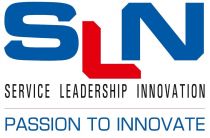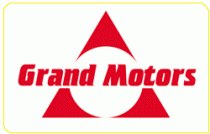Non-Muscle Invasive Bladder Cancer (NMIBC) Market is increasing with ~ 8% CAGR during the study period (2017-2030), according to DelveInsight
LAS VEGAS, Oct. 5, 2020 /PRNewswire/ -- DelveInsight's latest report on Non-Muscle Invasive Bladder Cancer Market also indicates that the tremendous growth of market size is because of the increased incident cases of NMIBC, imminent drug launches, increased diagnosis, upsurge in research and development, and enriched understanding of the disease.
https://mma.prnewswire.com/media/1082265/DelveInsight_Logo.jpg
Some key highlights from the report:
-- In the 7MM, the total diagnosed prevalent population of NMIBC was
estimated to be 533,263 cases in 2017, which is expected to increase in
the forecast period
-- The United States accounted for the maximum diagnosed prevalent
population among the 7MM in 2017.
-- The United States also accounted for more than half (50.69%) of the
market share in the 7MM.
-- Adstiladrin is projected to lead the market with the largest market
share in 2030.
-- Non-Muscle Invasive Bladder Cancer Key Players are Sesen Bio, FKD
Therapies Oy, Ferring Pharmaceuticals, Hoffmann-La Roche, Pfizer,
Spectrum Pharmaceuticals, Bristol-Myers Squibb, AstraZeneca, UroGen
Pharma, Incyte Corporation, CG Oncology, Janssen Research & Development,
Celgene Corporation, ImmunityBio, Altor Biosciences, Theralase, EMD
Serono, Hamlet Pharma, TesoRx Pharma, AstraZeneca and others.
Discover more here:- https://www.delveinsight.com/sample-request/non-muscle-invasive-bladder-cancer-market
Non-Muscle Invasive Bladder Cancer is a common, heterogeneous disease associated with high recurrence rates. The cancer is found in the tissue that lines the bladder's inner surface, wherein the bladder muscle is not involved.
Approximately 70-80% of patients with newly diagnosed bladder cancer present with a form of Non-Muscle Invasive Bladder Cancer, such as non-invasive papillary tumour (pTa), carcinoma in situ (CIS; pTis), or early invasive tumour (non-muscle invasive; pT1). These tumours characteristically recur in 50-70% of cases, with only approximately 10-20% of cases progressing to muscle-invasive bladder cancer (MIBC).
The epidemiology for NMBIC is complex however DelveInsight's NMIBC report covers an in-depth epidemiological analysis and provides epidemiological forecasts upto 2030, segmented as the following: · Prevalent cases of Bladder Cancer
-- Diagnosed Prevalent cases of Bladder Cancer
-- Diagnosed Prevalent cases of NMIBC
-- Age-specific Diagnosed Prevalence of NMIBC
-- Tumour (T) stage specific Diagnosed Prevalence of NMIBC
-- Grade-specific Diagnosed Prevalence of NMIBC
-- Risk-specific Diagnosed Prevalence of NMIBC
Non-Muscle Invasive Bladder Cancer Market Scenario
NMIBC remains a very challenging disease to treat with high rates of recurrence and progression associated with current therapies. The high rates of progression and recurrence with current therapies for NMIBC necessitate lifelong active surveillance, making bladder cancer the most expensive cancer to treat from diagnosis to death, as well as driving the need for the development of new therapies in patients with NMIBC.
Historically Bacillus Calmette-Guarin (BCG) was the main treatment option for early bladder cancer i.e. high-risk NMIBC but more than 50-60% of patients become BCG unresponsive. Additionally, ongoing BCG shortage in addition to the lack of effective alternative drug therapies for patients with BCG-unresponsive disease, a large unmet need exists for these patients and providers. The treatment regimen includes surgery, intravesical immunotherapy, and intravesical chemotherapy. Intermediate- or high-risk NMIBC is generally treated with transurethral resection of bladder tumor (TURBT), followed by adjuvant BCG immunotherapy, which is the standard gold treatment for reducing tumor recurrence rates and preventing subsequent stage progression. However these are associated with many adverse side effects. Due to all these issues, there was a high unmet need for these patients until Keytruda got approved in 2020. Newer promising agents including gene therapies and fusion proteins are in pipeline, addressing these challenges. The high-grade NMIBC pipeline possesses potential drugs in mid and late stage developments to be launched in the near future. Some of the potential ones are:
Adstiladrin (nadofaragene firadenovec): is a gene therapy consisting of an adenovirus containing the gene interferon (IFN)-alpha2b. Things are on track for approval of gene therapy for early-stage bladder cancer i.e. High-risk BCG refractory NMIBC sooner as the latest data presented during ASCO GU symposium 2020 was very promising and even better in terms of efficacy and duration of response than only approved treatment i.e. Keytruda. It has got Priority Review; Fastrack; Breakthrough designation from USFDA already.
Keytruda: It is the first and only approved immune checkpoint inhibitor approved for high-risk non-muscle-invasive bladder cancer. It is expected to get stiff competition from Adstiladrin, a gene therapy that will share the same patient pool with Keytruda.
Vicinium: also known as VB4-845, is an antibody-drug conjugate (ADC), developed for the treatment of high-grade non-muscle invasive bladder cancer (NMIBC). Vicinium is comprised of a recombinant fusion protein that targets epithelial cell adhesion molecule (EpCAM) antigens on the surface of tumor cells to deliver a potent protein payload, Pseudomonas Exotoxin A (ETA).
N-803 (ALT-803): is an interleukin-15 (IL-15) agonist, along with BCG looks another promising option for NMIBC patients
Emerging Drugs in NMIBC | Key Players involved
1. Vicinium: Sesen Bio
2. Adstiladrin (nadofaragene firadenovec/Syn3): FKD Therapies Oy/ Ferring
Pharmaceuticals
3. Tecentriq (atezolizumab): Hoffmann-La Roche
4. Sasanlimab (PF-06801591) + BCG: Pfizer
5. Apaziquone: Spectrum Pharmaceuticals
6. Opdivo (nivolumab): Bristol-Myers Squibb
7. Imfinzi (durvalumab): AstraZeneca
8. VesiGel (UGN-102/mitomycin gel): UroGen Pharma
9. Pemigatinib: Incyte Corporation
10. CG0070: CG Oncology
11. Erdafitinib: Janssen Research & Development
12. Revlimid (lenalidomide): Celgene Corporation/Bristol-Myers Squibb
13. N-803 (ALT-803): ImmunityBio/Altor Biosciences
14. TLD-1433: Theralase
15. Bavencio (avelumab + BCG): EMD Serono
16. Alpha1H: Hamlet Pharma
17. LiPax: TesoRx Pharma
18. Imfinzi (durvalumab) + S-488210/S-488211: AstraZeneca
Key Trends of Non-Muscle Invasive Bladder Cancer Market Report: https://www.delveinsight.com/report-store/non-muscle-invasive-bladder-cancer-market
Scope of the Report
-- Geography Covered: 7MM - The United States, EU5 (Germany, France, Italy,
Spain, and the United Kingdom), Japan.
-- Study Period: 3-year historical and 11-year forecasted analysis
(2017-2030).
-- Markets Segmentation: By Geographies, By Therapies (Forecasted +
Historical).
-- Companies Covered: Sesen Bio, FKD Therapies Oy, Ferring Pharmaceuticals,
Hoffmann-La Roche, Pfizer, Spectrum Pharmaceuticals, Bristol-Myers
Squibb, AstraZeneca, UroGen Pharma, Incyte Corporation, CG Oncology,
Janssen Research & Development, Celgene Corporation, ImmunityBio, Altor
Biosciences, Theralase, EMD Serono, Hamlet Pharma, TesoRx Pharma,
AstraZeneca and several others.
-- Analysis: Comparative and conjoint analysis of emerging therapies,
Attribute Analysis
-- Case Studies
-- KOL's Views
-- Analyst's View
Table of Contents
1 Key Insights
---
2 Executive Summary of Non-Muscle Invasive
Bladder Cancer
---
3 Non-Muscle Invasive Bladder Cancer SWOT
Analysis
---
4 Non-Muscle Invasive Bladder Cancer Market
Overview at a Glance
---
5 Disease Background and Overview: Non-Muscle
Invasive Bladder Cancer
---
6 Recognized Establishments
---
7 Non-Muscle Invasive Bladder Cancer Epidemiology
and Patient Population
---
8 7MM Total Diagnosed NMIBC Prevalent cases
---
9 7MM NMIBC Epidemiology
---
9.1 United States
---
9.2 EU5 Countries
---
9.3 Germany
---
9.4 France
---
9.5 Italy
---
9.6 Spain
---
9.7 United Kingdom
---
9.8 Japan
---
10 Non-Muscle Invasive Bladder Cancer Treatment
---
11 Unmet Needs
---
12 Non-Muscle Invasive Bladder Cancer Marketed
Drugs
---
12.1 Keytruda (pembrolizumab): Merck
---
12.2 Valstar (valrubicin): Endo Pharmaceuticals
---
13 Non-Muscle Invasive Bladder Cancer Emerging
Drugs
---
13.1 Vicinium: Sesen Bio
---
13.2 Adstiladrin (nadofaragene firadenovec/Syn3):
FKD Therapies Oy/ Ferring Pharmaceuticals
---
13.3 Tecentriq (atezolizumab): Hoffmann-La Roche
---
13.4 Sasanlimab (PF-06801591) + BCG: Pfizer
---
13.5 Apaziquone: Spectrum Pharmaceuticals
---
13.6 Opdivo (nivolumab): Bristol-Myers Squibb
---
13.7 Imfinzi (durvalumab): AstraZeneca
---
13.8 VesiGel (UGN-102/mitomycin gel): UroGen
Pharma
---
13.9 Pemigatinib: Incyte Corporation
---
13.10 CG0070: CG Oncology
---
13.11 Erdafitinib: Janssen Research & Development
---
13.12 Revlimid (lenalidomide): Celgene
Corporation/Bristol-Myers Squibb
---
13.13 N-803 (ALT-803): ImmunityBio/Altor
Biosciences
---
13.14 TLD-1433: Theralase
---
13.15 Bavencio (avelumab + BCG): EMD Serono
---
13.16 Alpha1H: Hamlet Pharma
---
13.17 LiPax: TesoRx Pharma
---
13.18 Imfinzi (durvalumab) + S-488210/S-488211:
AstraZeneca
---
14 Non-muscle Invasive Bladder Cancer 7 Major
Market Analysis
---
15 Attribute Analysis
---
16 Key Non-Muscle Invasive Bladder Cancer Market
Assumptions
---
17 7MM NMIBC Market Outlook
---
17.1 United States NMIBC Market Size
---
17.2 Germany
---
17.3 France
---
17.4 Italy
---
17.5 Spain
---
17.6 United Kingdom
---
17.7 Japan NMIBC Market Size
---
18 Access and Reimbursement
---
19 Case Reports
---
20 Non-Muscle Invasive Bladder Cancer Market
Drivers
---
21 Non-Muscle Invasive Bladder Cancer Market
Barriers
---
22 Appendix
---
23 DelveInsight Capabilities
---
24 Disclaimer
---
25 About DelveInsight
---
Browse Detailed TOC, Tables, Figures, Emerging Drugs and Companies @ https://www.delveinsight.com/sample-request/non-muscle-invasive-bladder-cancer-market
Reasons to buy
-- The report helps in development of business strategies by understanding
trends.
-- Insights on future market competition in the Non-Muscle Invasive Bladder
Cancer market.
-- Organize sales and marketing efforts by identifying the best
opportunities for NMIBC.
-- Identification of strong upcoming players in the market to stay ahead of
competitors.
Request a WebEx Walkthrough of the Report: https://www.delveinsight.com/sample-request/non-muscle-invasive-bladder-cancer-market
Related Reports
Non Muscle Invasive Bladder Cancer Pipeline Insights, 2020
Non Muscle Invasive Bladder Cancer Pipeline Insight, 2020 report by DelveInsight outlays comprehensive insights of present clinical development scenario and growth prospects
DelveInsight is a leading Business Consultant, and Market Research Firm focused exclusively on life sciences. It supports pharma companies by providing end to end comprehensive solutions to improve their performance.
Contact us:
Shruti Thakur
info@delveinsight.com
+91-9650213330
DelveInsight
View original content:http://www.prnewswire.com/news-releases/non-muscle-invasive-bladder-cancer-nmibc-market-is-increasing-with--8-cagr-during-the-study-period-2017-2030-according-to-delveinsight-301145586.html
SOURCE DelveInsight Business Research, LLP




